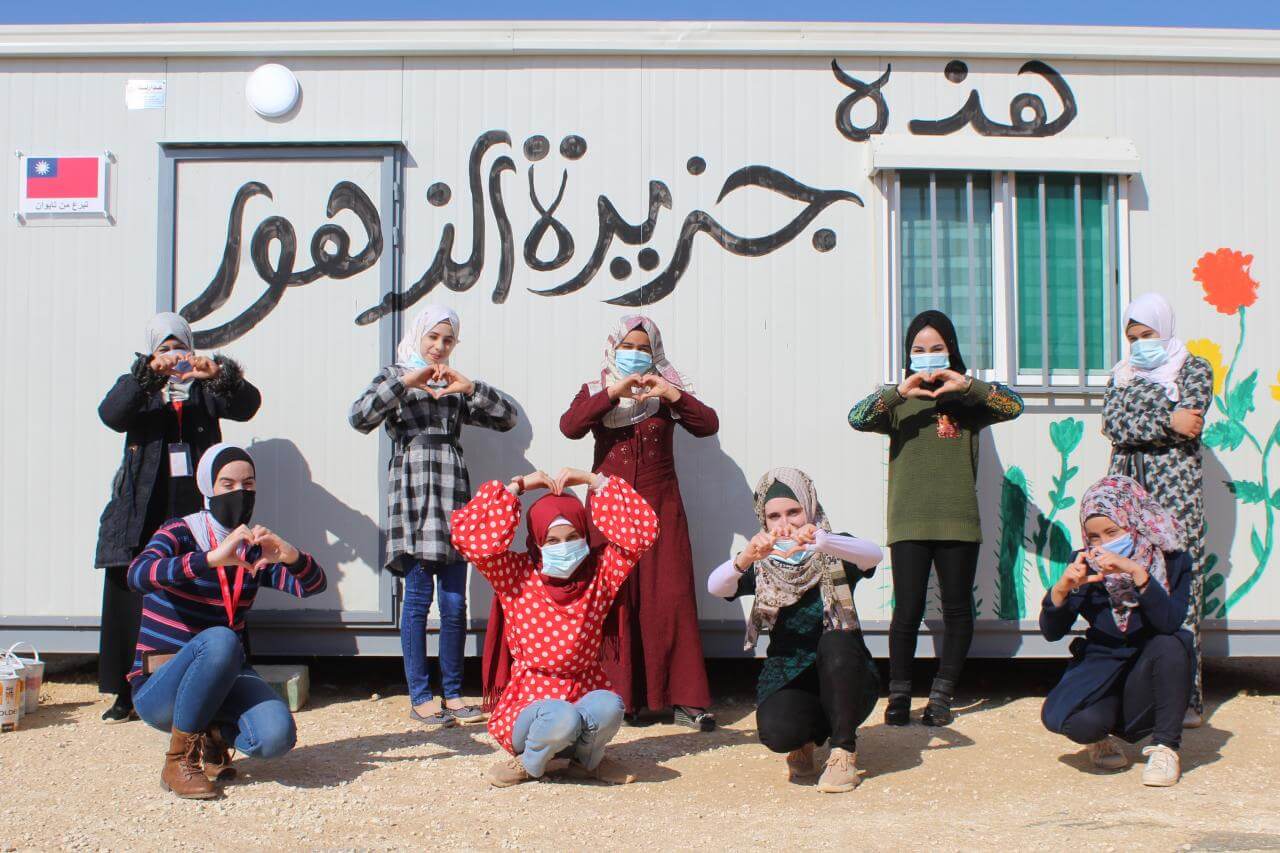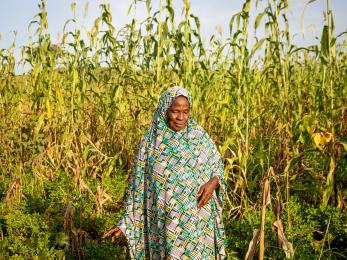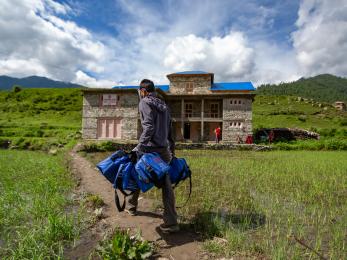The women on the frontlines of COVID-19 awareness
Bringing prevention information to remote Indian tea estates
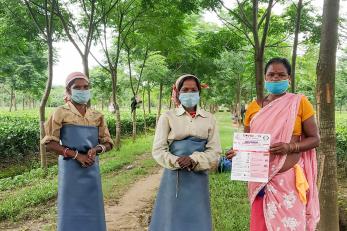
In remote northeastern India, living amongst the teeming fields of tea bushes, Jayanti Malik Mura faced a daunting task: how could she help keep her community safe from the spread of COVID‑19? As a community health worker at Borbam Tea Estate in Amgoorie, Assam, Jayanti had the unprecedented responsibility of bringing awareness about a global pandemic to her own neighbors and townspeople.
Jayanti was on the frontlines, going door to door, answering questions and sharing safety guidelines about wearing face masks, regular handwashing, and how to practice social distancing. Along with other health workers, she visited sick people and provided resources for care. Jayanti’s role as a health worker, also known as ASHA (Accredited Social Health Activist), is especially important in combating COVID‑19 where she is the main source of information for more than 300 families. “If anyone from my designated area needs any help or assistance,” Jayanti said, “I am there for them.”
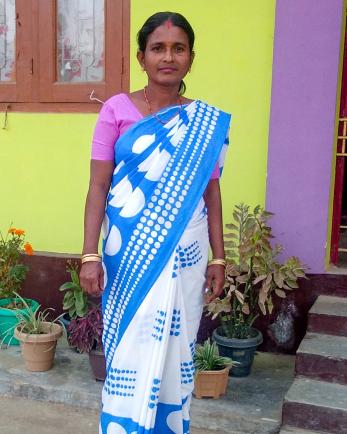
Born in Amgoorie, Jayanti grew up living on the tea estate where she raised two daughters and two sons with her husband, Bipin Mura, who is a driver for the tea estate. Tea workers in India face unique challenges in accessing resources and services because of low literacy rates and the geographic isolation of the farms, with many families still lacking basic access to clean water and latrines. Due to misinformation, a big part of Jayanti’s job was to dispel rumors about COVID‑19. “Many people believed that [COVID‑19] was like malaria and dengue, caused by mosquito bites,” Jayanti said. When community members thought the virus was a disease similar to malaria, they took measures which didn’t help check the spread of coronavirus.
Awareness is a first step to combating COVID‑19
Drawing on a 16-year partnership, Mercy Corps and The Starbucks Foundation teamed up to help prevent the spread of COVID‑19 and to keep communities like Jayanti’s as safe as possible through access to COVID‑19 health, sanitation and hygiene information. While Mercy Corps and The Starbucks Foundation have been at work creating more access to clean water and latrines in Borbam Tea Estate, an awareness campaign was vital in containing the spread of the pandemic in areas with scarce access to information. Mercy Corps and The Starbucks Foundation continued their longstanding efforts to support coffee- and tea- growing communities around the world, with a focus on protecting farmer livelihoods during the pandemic by collaborating with local government and community organizations to relay an awareness campaign that would reach the most remote areas including Assam.
The Mercy Corps team installed loudspeakers on top of vehicles that traveled to the most outlying farmlands in Assam, playing pre-recorded messages on preventative measures in the three local languages. The team reached more than 110,000 people across 17 tea estates, delivered kits with hygiene supplies to communities, and put up posters and banners with vital information. Health workers like Jayanti were critical partners in helping to further reach communities.
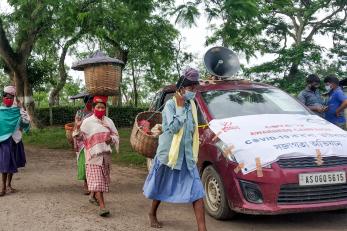
COVID‑19 safety on the tea estate
In another community in Assam, Phuleshwari Salge supervises tea workers at the Dirial Tea Estate and helped to ease concerns using information from the awareness campaign. “It was the plucking season and we were still in the midst of [the] pandemic,” Phuleshwari said. “Every day hundreds of new cases were reported in Assam so the workers had a lot of confusion. They had a lot of questions. They were uncertain.” Using COVID‑19 prevention information distributed by Mercy Corps, Phuleshwari assured them by educating her fellow workers about safety measures.
Phuleshwari has worked on the tea estate for more than 30 years, having raised two daughters on her own after her husband passed away. Her daughters are now in college and Phuleshwari remains at the tea estate as a resource for the women she manages. She is among the women who make up more than half of the workforce in the tea industry, one of India’s largest employers of women. She went to great lengths to support those in her community, helping to keep hundreds of workers safe by educating and enforcing safety measures like wearing face masks and regular handwashing. “They know the safety precautions are now part of the work,” Phuleshwari said.
Awareness, prevention, and vaccination
“The pandemic is not over yet,” said Jayanti. “We have more disinformation going on as the vaccination drive has begun. While we still need to keep educating people about COVID‑19 safety measures, we have another task at hand and this is to educate people about the vaccination and help clear any misconceptions or false information that they might have about the COVID‑19 vaccine.” Looking forward, Mercy Corps and The Starbucks Foundation are continuing to support tea estate communities in Assam by providing access to accurate and timely COVID‑19 health and vaccine information.
